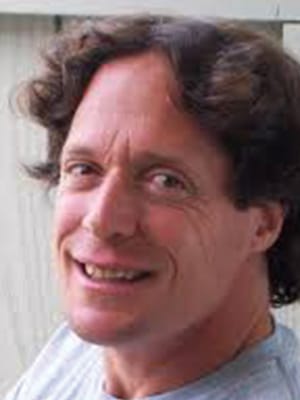Sivananda Bahamas Blog
Expand Your Horizons …
Our Blog
The Science and Spirituality of Forgiveness
In a satsang presentation at the Sivananda Ashram Yoga Retreat in March 2017, Dr. Fred Luskin spoke about both the science and spirituality of forgiveness — and why forgiveness is so necessary in our lives. Dr. Luskin is Director of the Stanford Forgiveness Projects and author of the best-selling Forgive for Good and Forgive for Love.
Fred Luskin began scientific studies on forgiveness 20 years ago while working on his PhD in counseling and health psychology at Stanford University. He had a firm belief that science could prove the benefits of spiritual values, such as forgiveness. And, it turns out, he was right.
While we don’t often think about forgiveness scientifically — it is more a combined act of heart, mind, and soul than a something that can be studied — breakthroughs in neuroscience in the last two decades have made it possible for the the work of pioneering researchers to investigate seemingly “softer” elements of the human experience, including forgiveness, compassion, and mindfulness.
Dr. Luskin first began his investigation by studying the link between forgiveness and heart disease. “Hostility and loneliness have more to do with heart disease than cigarette smoking,” he says. He points out that we are not a caretaking culture and cites the nature of capitalistism as one factor that leads to negative thinking. “One of the positive qualities of capitalist culture is innovative thinking, but there is also a dark side too, like alienation, loneliness, competition, and anger.”
What is the solution? According to Dr. Luskin’s scientific studies, is spirituality. Yoga and meditation are very beneficial, allowing people to quiet the mind and access broader perspectives. With a still mind and stable objectivity, your reactions no longer come from a limited, self-centered point of view, but rather from a more open, relational one.
A big part of forgiveness is letting go of our selfishness and personal expectations of others. Dr. Luskin cites self-centeredness as a very large factor in a person’s inability to forgive. “We walk around with expectations of what people owe us, because it's too hard to admit that no one owes us anything,” he says. He’s clear that carrying around a grudge or harboring hatred is emotional baggage that we need to drop. "Most of us use our unresolved wounds to excuse our own unkindness,” he says. "That's where forgiveness comes in."
Forgiving does not mean forgetting, Dr. Luskin points out. It does, however, mean putting a new spin on an old story. For example, you can say, “'I had the worst mom on the planet,” or you can say, “It’s too bad my mother never got to enjoy being a mom.” Making the differentiation in speech can help us to elicit a new response from our hearts.
As Dr. Luskin’s scientific discoveries progressed, he created a successful forgiveness intervention with students. He later replicated this concept as a full-scale study that became the Forgiveness Project. By using the same strategies to help elicit forgiveness in his interventions, he began to train others on a broader scale. He now trains teachers to help others achieve emotional intelligence, happiness, and forgiveness as part of his wellness education practices.
"We don't spend enough energy giving thanks for what's good in life," Dr. Luskin says. "Really understand that nobody owes you anything. If you can let that notion in, it prepares you to be incredibly happy. Look for the good and practice gratitude."
4 Strategies Dr. Luskin’s Uses for Forgiveness:
- Take a few deep breaths and relax the body.
- Remember something good in your life so your body can experience that feeling, rather than being fueled by adrenaline.
- Remind yourself that you're not the center of the universe!
- When you talk about the story, try not to generate a grievance story — adopt a new perspective.
*****

Frederic Luskin, PhD, is Director of the Stanford Forgiveness Projects and the author of the best-selling Forgive for Good and Forgive for Love. He is internationally recognized for his forgiveness work and also works as a Senior Fellow in Wellness at the Stanford University Health Center.
Upcoming Courses
Forgiveness is a powerful part of spiritual life and a deeply transformative practice. Learn how to find forgiveness in your heart and what changes as a result.








